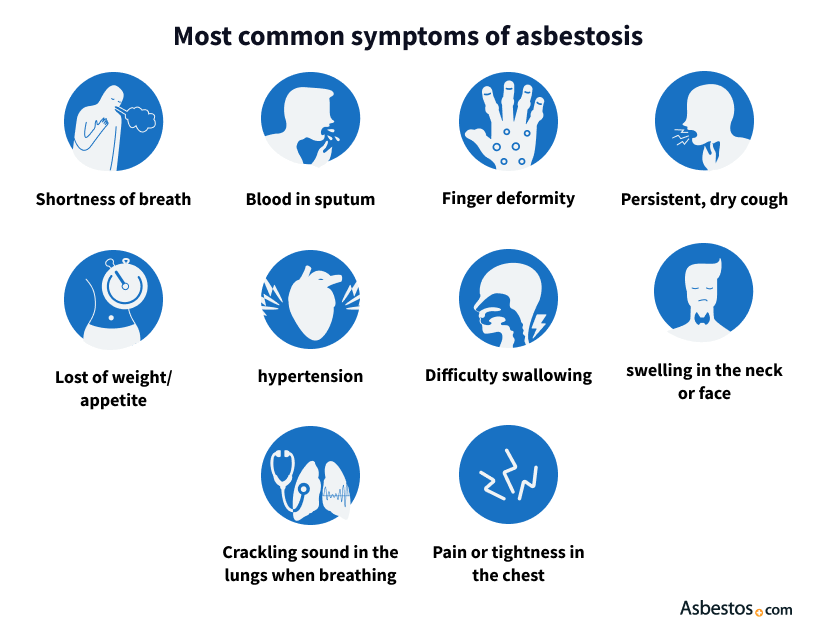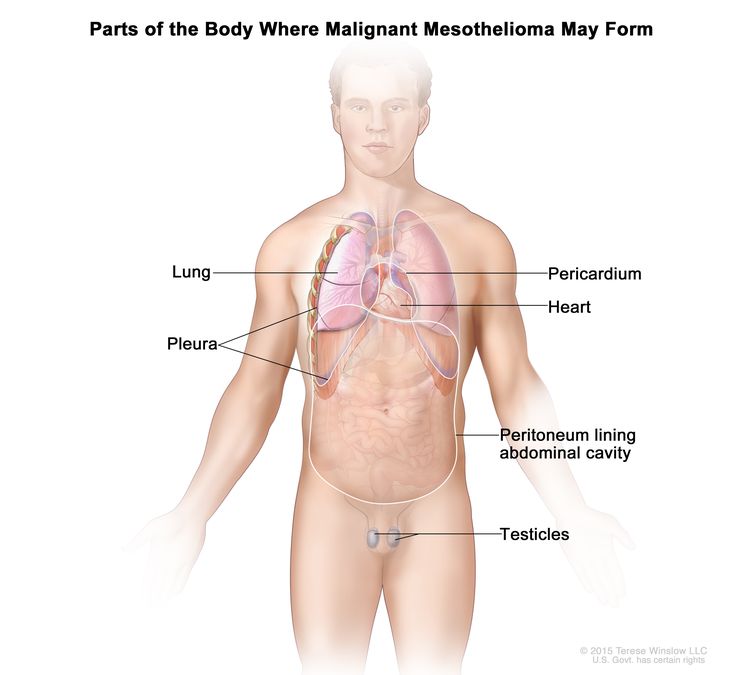surviving mesothelioma facts
 Mesothelioma Facts and Causes
Mesothelioma Facts and Causes
 As someone who has been diagnosed with mesothelioma, it's important to understand the facts and causes of this disease.
As someone who has been diagnosed with mesothelioma, it's important to understand the facts and causes of this disease.
Mesothelioma is a rare form of cancer that affects the lining of the lungs, heart, or abdomen.
It's caused by exposure to asbestos fibers, which can be inhaled or ingested over time.
Here are some key facts about mesothelioma:
- The average age of diagnosis is between 50 and 70 years old.
- Men are more likely to develop mesothelioma than women.
- Symptoms may not appear until decades after exposure to asbestos.
- Smoking does not increase the risk of developing mesothelioma, but it can worsen symptoms.
- There is no known cure for mesothelioma, but treatment options are available.
The primary cause of mesothelioma is exposure to asbestos, which was commonly used in construction materials, insulation, and other products throughout much of the 20th century.
Asbestos fibers can become airborne when these materials are disturbed, and can then be inhaled or ingested by those nearby.
If you have been diagnosed with mesothelioma, it's important to identify any potential sources of asbestos exposure in your past.
This could include working in certain industries, being exposed to asbestos at home, or even secondary exposure through contact with someone who worked around asbestos.
Early Detection and Diagnosis
 As someone who has experienced mesothelioma, I know that early detection and diagnosis is crucial for improving outcomes and increasing survival rates.
As someone who has experienced mesothelioma, I know that early detection and diagnosis is crucial for improving outcomes and increasing survival rates.
Unfortunately, mesothelioma is often difficult to diagnose early on because symptoms often don't appear until later stages of the disease.
Common Symptoms
Some common symptoms of mesothelioma include:
- Chest pain
- Shortness of breath
- Persistent coughing
- Fatigue
- Unexplained weight loss
If you experience any of these symptoms, it's important to speak with your doctor as soon as possible.
They may recommend a variety of tests and imaging scans to determine the cause of your symptoms.
Diagnosis
Diagnosis typically involves a combination of imaging tests, biopsies, and other diagnostic procedures.
Your doctor may also ask about your medical history and potential exposure to asbestos in order to make an accurate diagnosis.
Early detection is key when it comes to mesothelioma.
If you have a history of asbestos exposure or experience any symptoms, don't hesitate to speak with your doctor.
Imaging Tests
Imaging tests such as X-rays, CT scans, and MRIs can help identify any abnormalities or tumors in the body.
These tests can also help determine the stage of the disease.
Imaging tests are non-invasive and can provide valuable information about the presence and location of mesothelioma tumors.
Biopsies
A biopsy involves taking a small sample of tissue from the affected area and examining it under a microscope.
This can help confirm a mesothelioma diagnosis and determine the type of mesothelioma.
Biopsies are often necessary for an accurate diagnosis of mesothelioma.
They can also help determine the best course of treatment.
Treatment Options and Clinical Trials
 Treatment options for mesothelioma depend on several factors, including the stage of the disease, the location of the cancer, and the overall health of the patient.
Treatment options for mesothelioma depend on several factors, including the stage of the disease, the location of the cancer, and the overall health of the patient.
Surgery
Depending on the extent of the cancer, surgery may be recommended to remove tumors or affected tissue.
Radiation Therapy
High-energy radiation can be used to kill cancer cells and shrink tumors.
Chemotherapy
Powerful drugs can be used to kill cancer cells throughout the body.
New treatments and therapies are constantly being developed through clinical trials, which offer patients access to cutting-edge treatments that may not yet be widely available.
Clinical trials are research studies that test new treatments or therapies to determine their safety and effectiveness.
Patients who participate in clinical trials have access to the latest treatments and therapies that may not yet be widely available.
Your doctor can help you determine if a clinical trial is right for you.
Working with Your Healthcare Team
Your doctor will work with you to determine the best course of treatment based on your individual needs and circumstances.
It's important to keep an open dialogue with your healthcare team and ask questions about any potential side effects or risks associated with different treatments.
It's important to remember that every patient is unique, and what works for one person may not work for another.
Be sure to discuss all of your treatment options with your doctor and ask questions about any concerns you may have.
With the right treatment plan and support, many mesothelioma patients are able to manage their symptoms and improve their quality of life.
Coping with Mesothelioma Support and Care
 Stay Informed and Seek Support
Stay Informed and Seek Support
One of the best things you can do for yourself is to stay informed about the disease and its treatment options.
This will help you make informed decisions about your care.
Additionally, reaching out to family, friends, or a support group for emotional support and encouragement can help you cope with the challenges of mesothelioma.
Take Care of Yourself and Manage Stress
It's also important to take care of yourself physically and mentally.
Making healthy lifestyle choices, such as eating a balanced diet and getting regular exercise, can help you feel better and improve your overall health.
Additionally, practicing relaxation techniques like meditation or yoga can help manage stress and anxiety.
Did you know that mesothelioma is a rare cancer caused by exposure to asbestos? It can take decades for symptoms to appear after exposure.
Get Help from Your Healthcare Team
Your healthcare team can provide resources and referrals to support services in your community.
Don't be afraid to ask for help when you need it.
They can also help you manage symptoms and side effects of treatment.
Did you know that mesothelioma is often diagnosed at a later stage because symptoms can be mistaken for other conditions?
Stay Positive and Hopeful
Finally, it's important to stay positive and hopeful.
Mesothelioma can be a difficult disease to cope with, but there are treatment options available and many people have successfully managed the disease.
Surround yourself with positive people and focus on the things that bring you joy.
Legal Rights and Compensation for Victims
 If you have been diagnosed with mesothelioma as a result of asbestos exposure, you may be entitled to legal compensation from the responsible parties.
If you have been diagnosed with mesothelioma as a result of asbestos exposure, you may be entitled to legal compensation from the responsible parties.
This could include former employers, manufacturers of asbestos-containing products, or other entities that were negligent in protecting workers and consumers from asbestos exposure.
Key Things to Know
Here are some key things to know about seeking legal compensation:
- There is a statute of limitations on filing a lawsuit for mesothelioma, so it's important to act quickly.
- You may be able to file a claim even if you were exposed to asbestos many years ago
- An experienced mesothelioma attorney can help guide you through the legal process and maximize your chances of receiving fair compensation
Why Seek Legal Compensation?
It's important to remember that seeking legal compensation is not about greed or revenge - it's about holding those responsible accountable for their actions and ensuring that victims receive the care and support they need.
Victims of mesothelioma and their families often face significant medical expenses, lost wages, and emotional distress.
Seeking legal compensation can help alleviate some of these burdens and provide a sense of justice.
How to Find a Mesothelioma Attorney
When looking for a mesothelioma attorney, it's important to find someone with experience in handling these types of cases.
You can start by:
- Asking for referrals from other mesothelioma patients or support groups
- Researching attorneys online and reading reviews
- Scheduling consultations with potential attorneys to discuss your case
Remember to ask about the attorney's experience, success rate, and fees before hiring them to represent you.
Life after Mesothelioma: Managing Long-Term Effects
Even after successful treatment for mesothelioma, there may be long-term effects and challenges to manage.
These could include physical side effects from treatment, emotional distress related to the diagnosis, or financial struggles resulting from medical bills and lost wages.
Staying Vigilant
It is important to continue to get regular checkups and follow-up care to monitor for any signs of recurrence or new health issues.
This can help catch any potential problems early on and improve the chances of successful treatment.
Seeking Support
Consider joining a support group or working with a counselor to address any emotional or psychological challenges.
Talking to others who have gone through similar experiences can be helpful in coping with the aftermath of mesothelioma.
Taking Care of Yourself
Focus on maintaining a healthy lifestyle, including regular exercise and a balanced diet.
This can help improve physical and mental well-being and reduce the risk of other health problems.
Maintaining a healthy lifestyle can help improve physical and mental well-being and reduce the risk of other health problems.
Advocating for Yourself
Don't be afraid to speak up about your needs and concerns with healthcare providers or other support services.
It is important to be an active participant in your own care and to ensure that your needs are being met.
Remember that recovery is a process, and it's okay to take things one day at a time.
With the right care and support, you can continue to live a fulfilling life after mesothelioma.
Conclusion
 Mesothelioma is a challenging diagnosis, but there are many resources available to help you manage the disease and its impact on your life.
Mesothelioma is a challenging diagnosis, but there are many resources available to help you manage the disease and its impact on your life.
Whether it's seeking medical treatment, legal compensation, or emotional support, don't hesitate to reach out for help when you need it.
By staying informed about the facts and causes of mesothelioma, as well as the latest treatment options and coping strategies, you can empower yourself to make the best decisions for your health and wellbeing.
Remember that you are not alone in this journey, and that there is hope for a brighter future beyond mesothelioma.






0 Comments